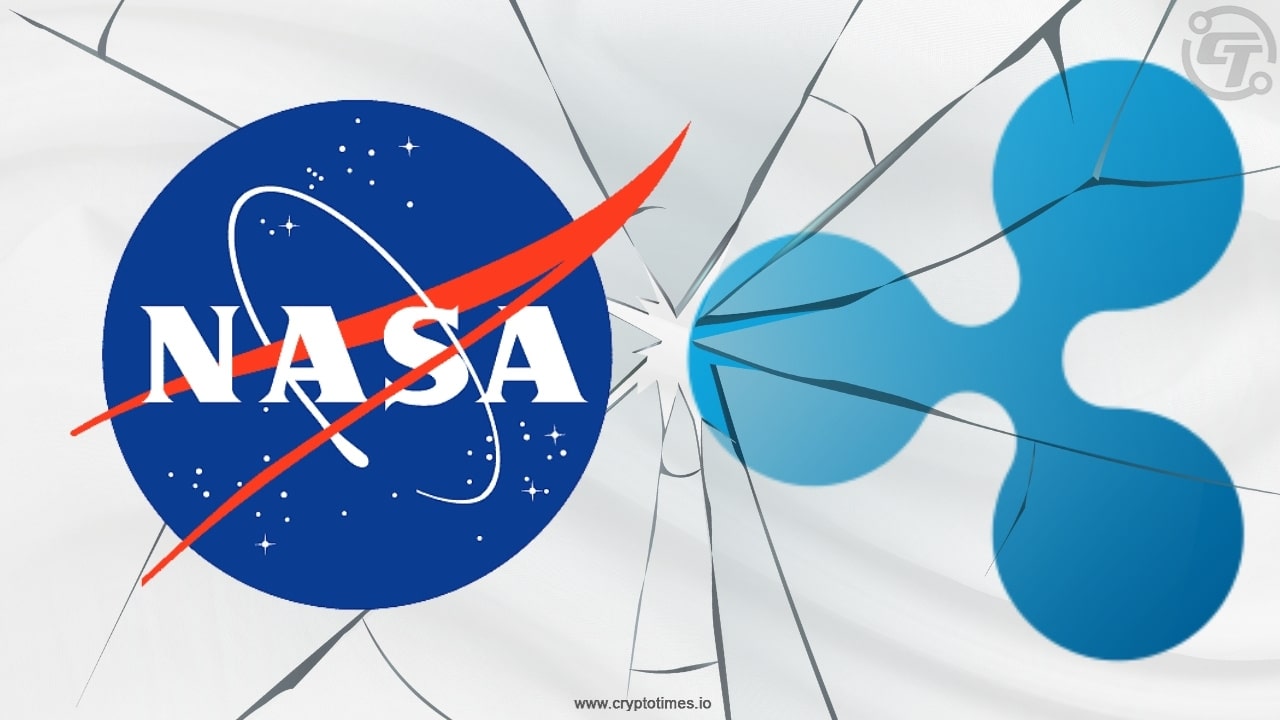There have been many rumours spreading like wildfire on social media that NASA is endorsing Ripple & XRP. People have been talking about these claims on X.
Our analysis has found that these claims are nothing more than a misinterpretation of NASA’s 2017 report.
The context
In 2017, when NASA released a report named “Bitcoin, Blockchains and Efficient Distributed Spacecraft Mission Control” by Daniel Mandl. The primary focus was on Bitcoin’s blockchain as a model for improving spacecraft mission management. The study looked at different types of blockchains, such as public, consortium, and private ones like Ripple, Ethereum, and Hyperledger, to see if they would work for space operations. Mandl talked about how blockchain could help space missions by cutting costs, making them more reliable, automating tasks, and giving them audit trails that can’t be changed.
The report also talks about problems with traditional blockchains, such as slow transaction speeds and large file sizes. It stresses the need for lightweight, hardened versions of blockchain that are made for spacecraft. The paper doesn’t pick a favorite blockchain platform, but it does talk about them as part of a bigger study of how useful they might be for NASA’s mission control systems.
Debunking the claims
Interestingly, the report has resurfaced after years gaining significant traction in the blockchain and crypto space. Recently, many social media handles are falsely claiming that NASA is endorsing Ripple.
Adding to the confusion, an X post by @ProfRipplEffect shared a part of a 2018 Space Symposium paper by Karen L. Jones instead of the NASA report. It talked about Ripple as an example of an open, permissioned ledger that could be used for real-time asset transfers, especially in the space sector for secure supply chains and identity management. This paper is unrelated to NASA’s 2017 blockchain research and does not imply NASA’s support for Ripple.
In another post by @JackTheRipple, it said that NASA’s blockchain presentation “acknowledges Ripple and XRP.” The discussion was mostly about how blockchain could be used in spacecraft operations, and the comments were more about early interest than any recent support. These claims have no factual basis and stem from misinterpretations of a seven-year-old research document.
In conclusion, NASA is not promoting Ripple. It is researching blockchain technology, which many have misinterpreted as endorsing cryptocurrencies.
Also Read: Michael Saylor Tells MrBeast to “Buy Bitcoin” as Bitcoin Hits ATH











